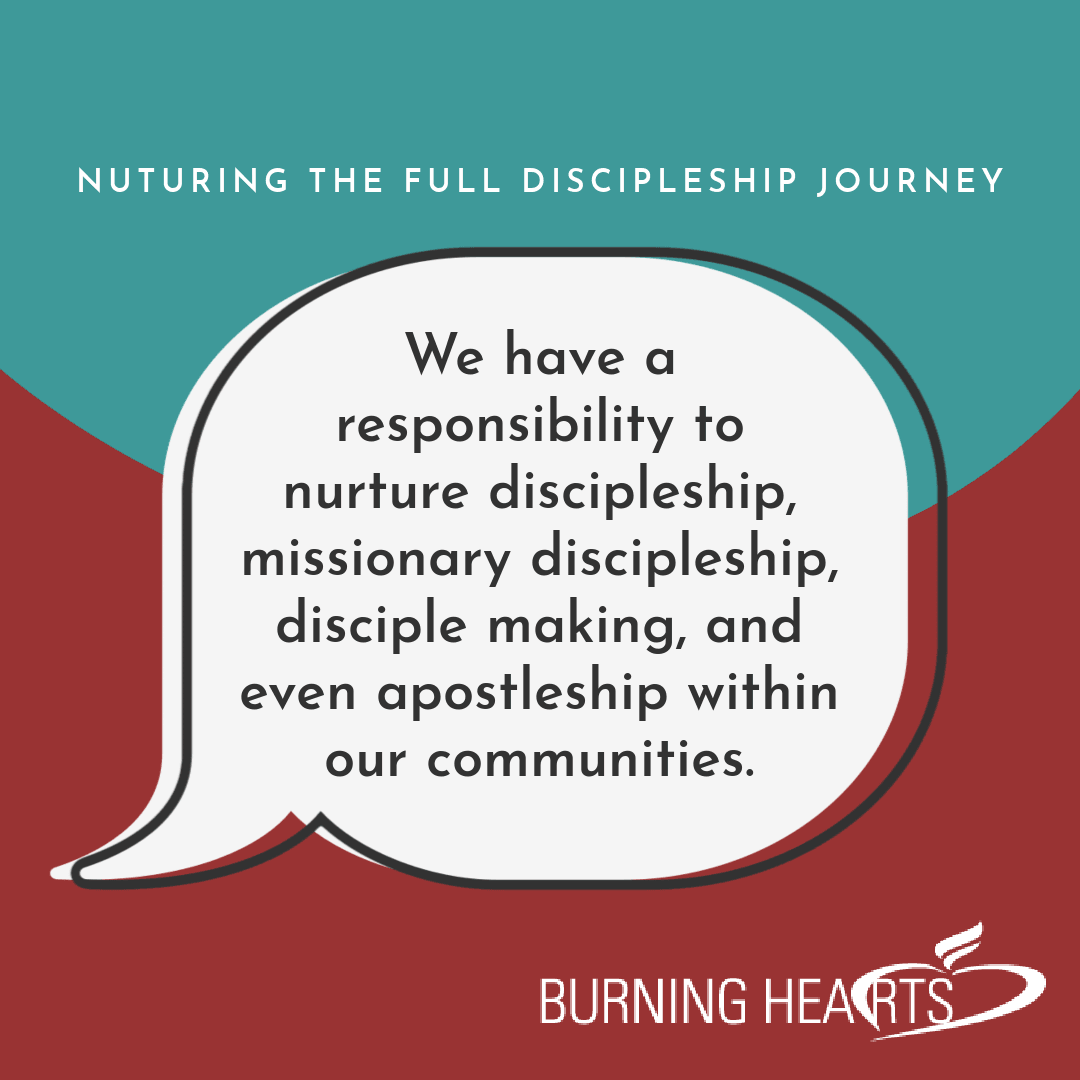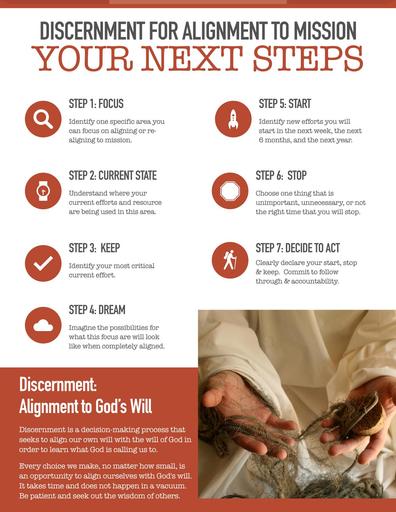 Understanding the roles and distinctions between apostles and disciples in our faith communities can help us build accompaniment, formation, and support structures that encourage and help people to grow across the full journey of discipleship.
Understanding the roles and distinctions between apostles and disciples in our faith communities can help us build accompaniment, formation, and support structures that encourage and help people to grow across the full journey of discipleship.
We are All Called to be Disciples
Discipleship is at the core of our faith. Being a disciple involves building a personal relationship with Jesus and practicing His teachings. Disciples strive to be like Christ, pursuing holiness and showing others God's love and mercy. At the core, discipleship is an active response to a relationship with Jesus.
Discipleship is active. It happens on purpose. The author of the book Forming Intentional Disciples, Sherry Weddell, said, "You don't do [discipleship] accidentally; you don't do it in your sleep."
Discipleship is also internal. You can't identify a disciple based only on their external practices. Both disciples and those who have not yet commited to making Jesus the center of their lives can participate in prayer, fasting, giving, participation in the sacraments, works of mercy.
A Disciple often has developed a heart for God that motivates their attitudes and actions, is willing to make sacrifices to grow in faith and relationship with Jesus, and is growing in the basic habits of the Christian life: Scripture, Sacraments, virtues, accepts suffering, spiritual and corporal works of mercy, openness to the Holy Spirit.
“A disciple is someone who seeks to enter more deeply into his relationship with Christ, and lead others into their own relationship with him." (Fr. Sean Pogue)
Apostles: Disciples First!
It's important to remember that the apostles were disciples first! They had direct experience and relationship with Jesus - profound encounters with him that changed their lives - and they responded to his call for them to follow him.
“Jesus said to Simon, ‘Do not be afraid; henceforth you will be catching men.’ And when they had brought their boats to land, they left everything and followed him” (Luke 5:10-11).
After they spent time growing in relationship with him, learning from him, and conforming their lives to his, Jesus appointed some of his disciples to be apostles. Jesus granted a unique authority to his apostles, enabling them to perform miracles, signs, and wonders in His name. This authority extended to making decisions that shaped the direction and mission of the Church in its earliest days.
The role of apostleship continued in the early Church through the laying on of hands, as the apostles ordained and appointed successors to carry on their ministry. This practice of apostolic succession has been maintained in the Catholic Church through the bishops. Catholic bishops are ordained to continue the apostolic ministry and entrusted with the responsibility of making decisions that shape the direction and mission of the Church in their respective dioceses. They exercise apostolic authority and are responsible for the Church's spiritual care, governance, and unity.
Just as the first apostles were disciples first, today's apostles (the Bishops) must also be disciples first. They should be able to share stories of their encounters with Jesus, be open about how their relationship with Him has grown, and continually seeking to conform their lives to his.
Embracing Our Call to Discipleship
While not all of us are called to be apostles, we are all called to be disciples. As parish leaders, we lead by example, showing our love for Christ and inspiring others to do the same. By being faithful disciples and missionary disciples ourselves, we can encourage others to embark on their own faith journeys, which strengthens our parishes and enriches the Church.
Nurturing The Discipleship Journey in Our Parishes
Recognizing disciples in your school or parish means building relationship and learning about the people you serve. Only by having deeper conversations are you able to uncover whether someones external practices are a result of someone seeking to deepen their faith, grow in relationship with Jesus, and align their lives with the teachings of Christ - or if they are the result of guilt, obligation, unreflected habit, or experimenting with faith.
As Catholic parish leaders, we have a responsibility to nurture discipleship, missionary discipleship, disciple making, and even apostleship within our communities.
We create an environment where disciples can grow in their faith, receive guidance, and fulfill their mission. We recognize that everyone is on a journey of discipleship and encourage our people to examine where they are on that journey currently and where they may be called next. We create a culture and expectation of intentional discipleship.
To further explore the distinctions between apostles and disciples and deepen your understanding as a Catholic parish leader, we invite you to download our "Discipleship Check-In" reflection.
This resource will provide valuable insights and practical guidance for nurturing the discipleship journey within your parish community. It will help you pray through your journey of discipleship and explore how you are being called to go further deeper into that relationship and mission with Jesus. When Catholic leaders are thoughtful, intentional, and grounded in our own discipleship journey, we can better accompany others on their faith journeys, which strengthens our parishes and enriches the Church!
pdf Download Here(105 KB)
Take advantage this opportunity to enrich your leadership skills and enhance the spiritual growth of your parish. Download this free resource now and embark on a transformative journey of nurturing a culture of discipleship in your Catholic community.
Together, let us embrace our calling as Catholic parish leaders and build thriving cultures of disciples and apostles!

